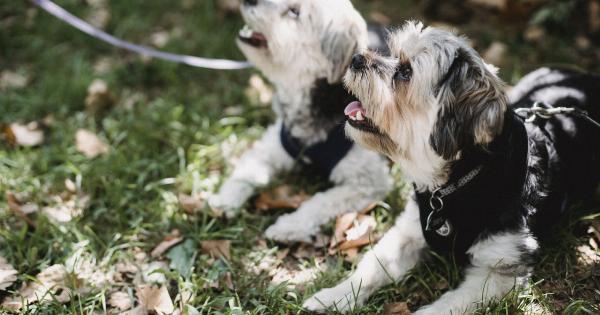Do you often find yourself feeling anxious and stressed? Are you constantly worrying about various aspects of your life? If so, you’re not alone. Many people experience feelings of worry and anxiety on a regular basis.
However, what you may not realize is that your emotional state can also affect your furry friend. Yes, that’s right! Dogs are highly sensitive animals and can pick up on our emotions. This means that if you’re worried, your dog might be feeling the same way too.
Understanding the Bond Between You and Your Dog
Before we delve into how your worries can impact your dog, let’s first talk about the incredible bond that exists between humans and dogs. Dogs are known as man’s best friend for a reason.
They have an innate ability to form deep connections with their human companions. This bond is built on trust, love, and mutual understanding.
When you bring a dog into your life, you become their world. They rely on you for food, shelter, and all their physical needs. But it doesn’t just end there. Your dog also looks up to you for emotional support and guidance.
They learn to read your cues and body language to understand how you’re feeling.
How Your Worries Can Affect Your Dog
If you’re constantly worried and anxious, your dog is likely to sense it. Dogs are incredibly perceptive animals and are capable of sensing changes in our behavior and energy. Here are a few ways in which your worries can affect your furry friend:.
1. Increased Stress Levels
Dogs can absorb and mirror our emotions. When you’re stressed or worried, your dog will pick up on your heightened energy levels and may become stressed themselves.
This can manifest in a variety of behaviors such as excessive barking, pacing, or even destructive behaviors like chewing on furniture.
2. Behavioral Changes
A worried dog may start exhibiting changes in their behavior. They may become more clingy or seek constant reassurance from you. They might also become more withdrawn or avoid certain situations or places that they associate with your worry.
Behavioral changes can vary from dog to dog, but any significant shift in their behavior should not be ignored.
3. Health Issues
Just like humans, prolonged stress and worry can have a negative impact on your dog’s health. Stress weakens the immune system and can make your furry friend more susceptible to illnesses and infections.
It can also exacerbate pre-existing health conditions.
4. Disrupted Routine
When you’re consumed by worry, your routine can become disrupted. This can affect your dog’s daily schedule and leave them feeling confused and unsettled.
Dogs thrive on routine and predictability, so any changes can lead to increased anxiety.
How to Help Your Worried Dog
If you’re worried and it’s affecting your dog, it’s essential to take steps to alleviate both your stress and your dog’s. Here are a few strategies that can help:.
1. Practice Self-Care
First and foremost, it’s crucial to take care of yourself. If you’re constantly worried, seek support from friends, family, or a therapist. Dedicate time each day for activities you enjoy and that help you relax.
Remember, your well-being directly impacts your dog’s well-being, so practicing self-care is essential.
2. Create a Calm Environment
Ensure that your home environment is calm and peaceful. Dogs are highly affected by their surroundings, so create a safe space for your dog that is free from excessive noise or chaos.
Providing a consistent and soothing environment can help alleviate your dog’s worries.
3. Establish a Routine
Set a daily routine for your dog and stick to it as much as possible. Dogs thrive on predictability, so having a consistent feeding, exercise, and playtime schedule can help reduce their anxiety.
4. Provide Mental and Physical Stimulation
Engage your dog in activities that provide mental and physical stimulation. This can include interactive toys, puzzle games, or even training sessions.
Mental and physical exercise can help distract your dog from their worries and channel their energy in a positive way.
5. Use Calming Techniques
There are various calming techniques that can help relax both you and your dog. Try deep breathing exercises, meditation, or even practicing yoga together.
Additionally, certain pheromone products and calming music designed specifically for dogs can help create a soothing atmosphere.
6. Seek Professional Help if Necessary
If your dog’s worries persist or worsen, it may be beneficial to seek professional help. A veterinarian or a professional dog behaviorist can provide guidance and support tailored to your dog’s specific needs.
The Healing Power of Love and Understanding
Remember, dogs are not just pets; they’re our companions and family members. They absorb our emotions and mirror our energy.
By taking steps to alleviate your worries, you can create a positive and calming environment for both yourself and your furry friend. Your dog will thrive when they feel loved, secure, and understood. So, take care of yourself, and in turn, you’ll be taking care of your beloved dog.






























